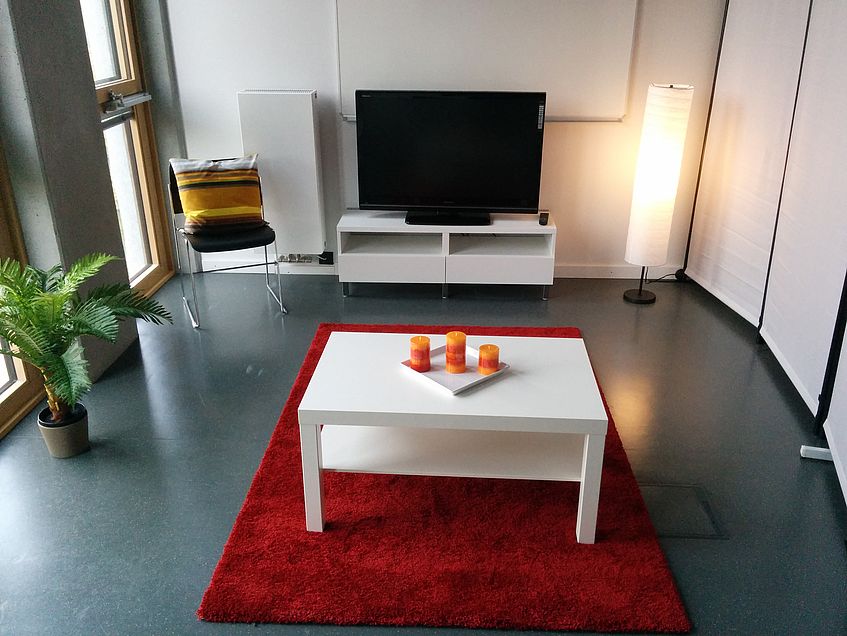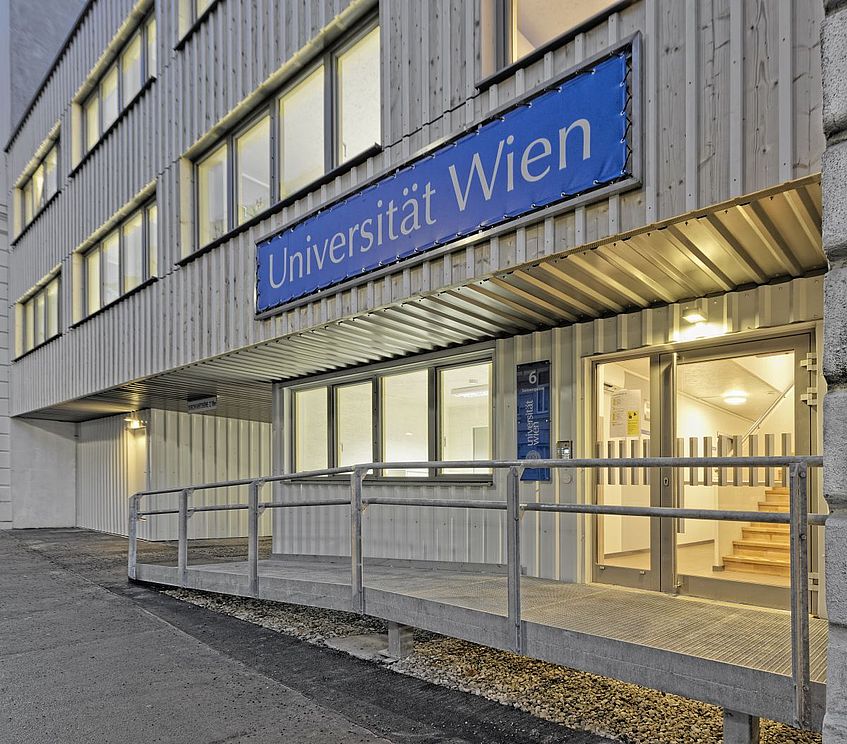Researching Cooperation – Enjoying Cooperations
A cooperative system may be defined as combination of technologies, human beings and organizations which is supporting their communication and coordination in order to contribute to the efficient realization of their joint objectives.

COSY Living Lab

Curta Mechanical Calculator
Hobby of Prof. Reichl

Sensengasse 6 - Home of COSY
Since 2013, the Research Group Cooperative Systems (COSY), headed by » Univ.-Prof. Dr. Peter Reichl, focuses on the investigation of such distributed systems in the area of ICT from an explicitly holistic perspective which addresses technological issues together with related economic and user-centric aspects.
The resulting interdisciplinary research area is based on solid knowhow about future architectures, communication protocols and distributed algorithms, including their technical and user-centric performance evaluation, but at the same time aims at integrating the perspective of computer science with neighboring disciplines from economics, human and social sciences. Currently, the research group is deliberately focussing on related topics in telecommunications, and especially around the Internet which currently represents the cooperative system par excellence.
IP-based Networking Technologies in Core and Access.
We investigate distributed algorithms for monitoring and controlling IP networks and services and develop novel approaches for traffic routing and priorisation both within and between core networks of different operators. Moreover we are researching new methods for the close coordination of remote access networks as well as techno-economic aspects of small cell networks (Wi-Fi/femto cells).
Network-based Information and Communication Economics (NICE).
Considering technical ICT systems from an explicit microeconomic perspective allows the employment of game theoretic methodologies for modeling all sorts of cooperation and competition scenarios in the corresponding ecosystem, as well as for describing the resulting consequences for value creation and charging, as well as corresponding regulatory aspects.
End User and Communication Ecosystem.
Our particular emphasis, however, is on the end user and her role within the communication ecosystem. Here, we deal for instance with intuitive interface and interaction design for mobile applications in the future world of ubiquitous telecommunications, but also with more fundamental questions concerning the future evolution of ICT towards a “digital humanism”.
This explicitly interdisciplinary approach results in the investigation of multi-faceted research questions, including:
Subjective Service Quality. While the area of service quality has traditionally been dominated by the technocratic approach of Quality of Service (QoS), more recently the subjective concept of Quality of Experience (QoE) has been established successfully. We follow a strictly user-centric approach for QoE and aim at the determination of fundamental QoE laws for speech, video, multimedia and web applications, the derivation of the corresponding relationship with network-based QoS parameters, and novel schemes for QoE-based service charging.
Usable Security. Also open questions in network and data security typically combine technical, economical and user-centric issues. Our specific interest focuses on the economical analysis of related market structures as well as the user acceptance of novel architectures, algorithms and interfaces aiming at an adequate, intuitive and pragmatic digital identity control.
Culture over IP. We believe that the delivery and distribution of cultural content will become one of the most important tasks (and challenges) of the future Internet. Inspired by the rich musical tradition of Vienna, in this context we mainly focus on applications from the area of classical music, especially opera.
The mentioned research directions directly shape our further activities, especially in terms of teaching and research projects. Moreover, with the establishment of the COSY:lab in collaboration with the Faculty for Psychology, the research group will have a state of the art user trial lab at its disposal which allows conducting extensive user studies in order to validate new scientific insight.
